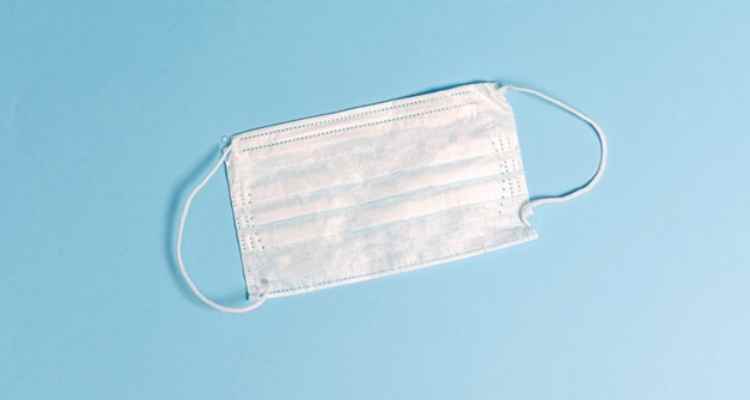When someone comes down with an illness or suffers an injury, the first thing that goes through their mind is visiting the hospital. However, as we all know, Covid-19 is a reality we cannot escape from. It is everywhere, and medical facilities like hospitals are feeling its wrath the most.
That said, as lockdown restrictions slowly start to ease up, we have seen a drastic rise in the number of Covid patients, increasing a hospital visitor’s chances of infection. As a result, it is now more dangerous than ever to visit a hospital if you want to see a patient or if you’re ill.
While hospitals take measures of their own to improve patient safety, their health and safety policies still have flaws. Due to this, hospital visitors need to take their safety into their own hands to ensure they stay safe, secure, and Covid-19 infection-free.
Knowing the hospital visitation do’s and don’t’s will provide you with the confidence you require while keeping you safe and away from Covid infection. Listed below are a few precautionary measures you need to take before and after visiting a hospital;
Wear PPE.
Personal protective equipment, or PPE, is vital to protecting yourself from germs, bacteria, and, most importantly, Covid-19 infection. Not to mention, it helps prevent the spread of harmful diseases and germs that you might be carrying with you. That said, PPE usually includes a respiratory mask, surgical mask, eye protection, and apparel such as aprons, gowns, and shoe covers.
So, before you go to the hospital, visit https://medicallinksllc.com/ to get your PPE to ensure you’re safe from viruses, bacteria, and airborne infections.
Wash and sanitize your hands before and after visiting.
Everyone can use the hand sanitizer and soap present inside patients’ rooms. Such a thing will allow you to avoid bringing the Covid-19 virus into the hospital or taking it out with you. That said, it will be even better if you washed and sanitized your hands before leaving home and after leaving the hospital.
Moreover, clean your hands with soap and sanitizer after coughing, sneezing, using the hospital restroom, and before touching your face, eating, or drinking.
Practice social distancing at the hospital.
During the Covid-19 pandemic, social distancing has kept people away from their loved ones and limited human contact to a minimum. But even though social distancing might be annoying and difficult to practice, it has many proven benefits.
And one of the most significant benefits is Covid prevention. Unfortunately, however, you’ll probably have to stand in a long line or wait in a crowded waiting room while visiting a hospital.
That said, some hospitals have markings or signs on the floor to help you maintain a 6 feet distance from others. So, you must adhere to such a precautionary measure if you want to remain Covid-free.
Moreover, if you’re asked to stay in a crowded hospital waiting room, it would be better to take a number and move to another part of the hospital till your name is called on the PA system.
Do your homework.
Before making an appointment, call the hospital or check the hospital’s website to know what they are doing to keep visitors safe from Covid-19. Some things you should check include;
- Whether or not doctors use PPE
- Whether or not social distancing practices are in place
- Is the hospital staff checking visitors’ temperature at the hospital entrance
- Is the hospital limiting the number of people that can enter the hospital
- Does the hospital contain sanitization stations
Knowing if the hospital you intend to visit is prioritizing visitor, doctor, and patient safety will allow you to rest assured that you will remain Covid-free during your visit.
Avoid touching high contact surfaces.
Try to stay away from frequently touched surfaces such as touchpads, elevator buttons, doorknobs, door handles, etc. While a hospital janitorial staff might clean these surfaces regularly, there is still a high probability they have bacteria, germs, and viruses on them.
So, to avoid coming in physical contact with them, wear gloves before touching or use tissue paper to press elevator buttons or open doors. Moreover, use a hand sanitizer or wash your hands afterward, even if you wore gloves or used tissue paper. Plus, don’t forget to dispose of these gloves and disappear properly, after using them, of course.
Give telemedicine a try for appointments.
Ask the hospital if you can get a telemedicine appointment like a video consultation through Skype or Zoom. It is an effective and low-cost way to follow up with your primary care physician without ever leaving your home.
Moreover, you can also have a consultation with your doctor via the phone. That said, ensure that the hospital uses a secure line of communication to avoid personal information from leaking. In the end, if it isn’t an emergency, opt for a telemedicine appointment to drastically lower your chances of contracting Covid-19.
Conclusion.
While the Covid-19 pandemic is a big concern for individuals with underlying health problems, hospitals and other medical facilities are constantly doing their best to make peoples’ visits as safe as possible.
That said, people must not leave it to others and look after their health and well-being themselves. So, ensure that you’re following the latest Covid-related health and safety precautions put out by the World Health Organization (WHO) and the Centers for Disease Control and Prevention (CDC). Doing so will allow you to avoid Covid infection altogether.

